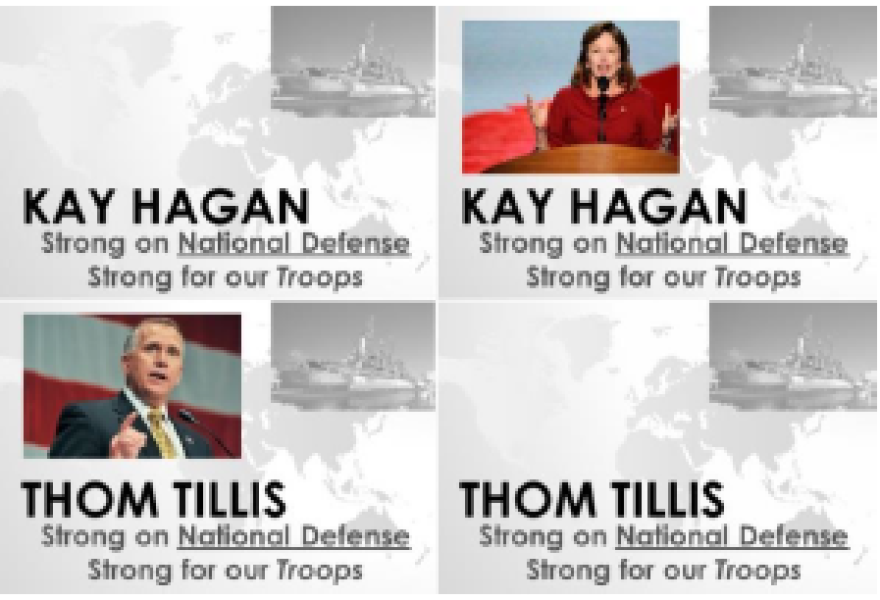Come Election Day, the candidate who’s listed first on the ballot has an advantage. At least that’s the conventional wisdom. But a new survey from Elon University casts doubt on that logic, and that could be good news this November for Democratic U.S. Senator Kay Hagan in her race against Republican state House Speaker Thom Tillis.
WFAE’s Duncan McFadyen joins Morning Edition Host Marshall Terry with more about the poll.
TERRY: So, how does this benefit Hagan?

MCFADYEN: Well, Elon researchers gave an online survey to 763 people registered to vote in North Carolina: half were shown ballots that listed Tillis first; Hagan was listed first on the other half. Now Hagan had the edge either way, but when Tillis’ name was listed second, Tillis gained 6 percent and Hagan lost 6 percent. That’s significant, because in North Carolina, the party that won the last gubernatorial election gets to list its candidates first. This year, of course, it’s the Republicans. So voters will see Thom Tillis listed before Kay Hagan.
TERRY: And this wasn’t all they looked at, I understand?
MCFADYEN: That’s right, the Elon researchers wanted to use visual questions, rather than having someone read out a list of options over the phone, which is how most scientific polling is traditionally done. Elon Political Science professor Jason Husser says that’s because the brain processes visual information differently.
HUSSER: So it’s hard to test for the ballot ordering using the telephone alone, because when a person’s at the ballot box, they’re going to experience it differently than they would in terms of a conversation.

MCFADYEN: They also asked the voters their opinion of the candidates after showing them either a photo of Tillis or Hagan by themselves, or one that included President Obama with Hagan or Governor McCrory with Tillis. They found favorability ratings were higher among people who saw the photos of just the candidates. But, Hagan took a bigger hit from the president than Tillis did from the governor.
TERRY: So it’s no surprise that the Tillis campaign is trying to tie Hagan to the president.
MCFADYEN: Right.
TERRY: So what else can researchers do with this “visual polling” that they maybe couldn’t with a traditional telephone survey?
MCFADYEN: Professor Husser says visual surveys could give us a more accurate look at how voters feel about a candidate on specific issues. So they showed the participants slides that said things like “Strong on National Defense, Strong for Our Troops." Here’s his explanation:
HUSSER: Folks might not even realize that they associate an issue with a candidate one way or the other, but we wanted to see, if we prime a voter on a certain issue, then we have them evaluate a candidate, who does better?

MCFADYEN: They did this for eight policy areas: education, women’s health, the economy, national defense, immigration, health care, voter ID laws, and same-sex marriage. Good news here for Hagan…her favorability was higher across the board, particularly on education and women’s health. But her lead over Tillis was considerably lower on immigration, national defense, and same-sex marriage.
TERRY: Now, this is an online survey, is it a “scientific” poll?
MCFADYEN: The short answer is yes, although Husser says these kinds of surveys do have one shortcoming: participants have to opt in. That means the sampling isn’t quite as random as a traditional poll. But, he stresses that the poll does reflect the state’s demographics.


